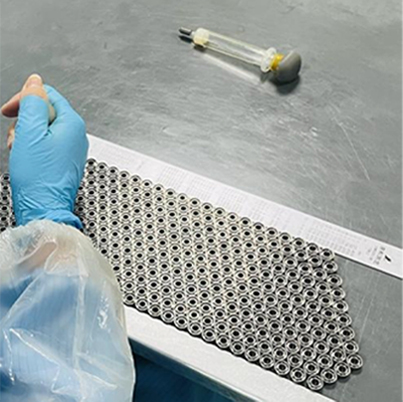Sep . 19, 2024 21:58 Back to list
deep groove ball bearing material exporter
Deep Groove Ball Bearing Materials An Overview for Exporters
Deep groove ball bearings are widely used in various applications due to their versatility and ability to accommodate radial and axial loads. One of the key factors influencing the performance and durability of these bearings is the material from which they are made. As an exporter of deep groove ball bearings, understanding the different materials used can enhance your marketing strategy and ensure you provide high-quality products to your clients.
Common Materials Used
1. Chrome Steel (AISI 52100) This is the most common material used in deep groove ball bearings. Chrome steel bearings offer excellent wear resistance and high hardness, making them suitable for high-speed applications. They typically have a hardness rating between 58 to 64 HRC, which ensures long service life under load. However, chrome steel is sensitive to corrosion, so it is essential to apply adequate lubrication and protective coatings for applications in humid or corrosive environments.
2. Stainless Steel (AISI 440C, AISI 304) Stainless steel is another popular material for deep groove ball bearings, particularly in applications where corrosion resistance is vital. AISI 440C stainless steel is commonly used due to its high hardness and excellent wear resistance, even in harsh conditions. AISI 304 stainless steel, while less hard than 440C, offers excellent corrosion resistance and is suitable for food processing and medical applications.
3. Ceramic Some advanced applications require bearings that can withstand extreme temperatures or corrosive environments. Ceramic materials, like silicon nitride (Si3N4), can be an excellent choice in such cases. They are lighter, have lower friction properties, and are resistant to corrosion and wear. However, ceramic bearings can be more brittle and require careful handling during installation.
deep groove ball bearing material exporter

4. Polymer Materials In specific applications, especially those involving lower loads or where visibility to corrosion is paramount, polymer materials can be utilized. Bearings made from materials such as PEEK (polyether ether ketone) are lightweight, chemical-resistant, and can operate effectively in a wide temperature range. These bearings are commonly used in industries like food and pharmaceuticals, where hygiene and corrosion resistance are crucial.
Quality Control and Standards
As an exporter, it’s imperative to adhere to international quality standards to ensure that the deep groove ball bearings meet the desired specifications. Standards such as ISO 9001 and ISO/TS 16949 are essential for maintaining quality in bearing production. Quality control throughout the manufacturing process can guarantee that the bearings perform reliably under various operating conditions.
Conclusion
Understanding the materials used in deep groove ball bearings is critical for ensuring quality and performance in your export offerings. By providing bearings made from high-quality materials such as chrome steel, stainless steel, ceramics, and polymers, you can meet the diverse needs of your customers across various industries. Ensuring adherence to quality standards further strengthens your brand's reputation and promotes customer satisfaction. Emphasizing these aspects in your marketing efforts can help distinguish your products in the competitive global market. Always stay updated on technological advancements and materials science to maintain a leading edge in the industry.
Latest news
-
25MM 2 BOLT UCFLX05-14 Flange bearing unit( oval)
NewsMar.07,2025
-
4 bolt UCF 200 series Pillow block bearings
NewsMar.07,2025
-
25MM 2 BOLT UCFLX05-14 Flange bearing unit( oval)
NewsMar.07,2025
-
UCF216-50 4-Bolt Flange Housing Square Bearing
NewsMar.07,2025
-
25MM 2 BOLT UCFLX05-14 Flange bearing unit( oval)
NewsMar.07,2025
-
spherical roller bearing material exporter
NewsMar.07,2025





